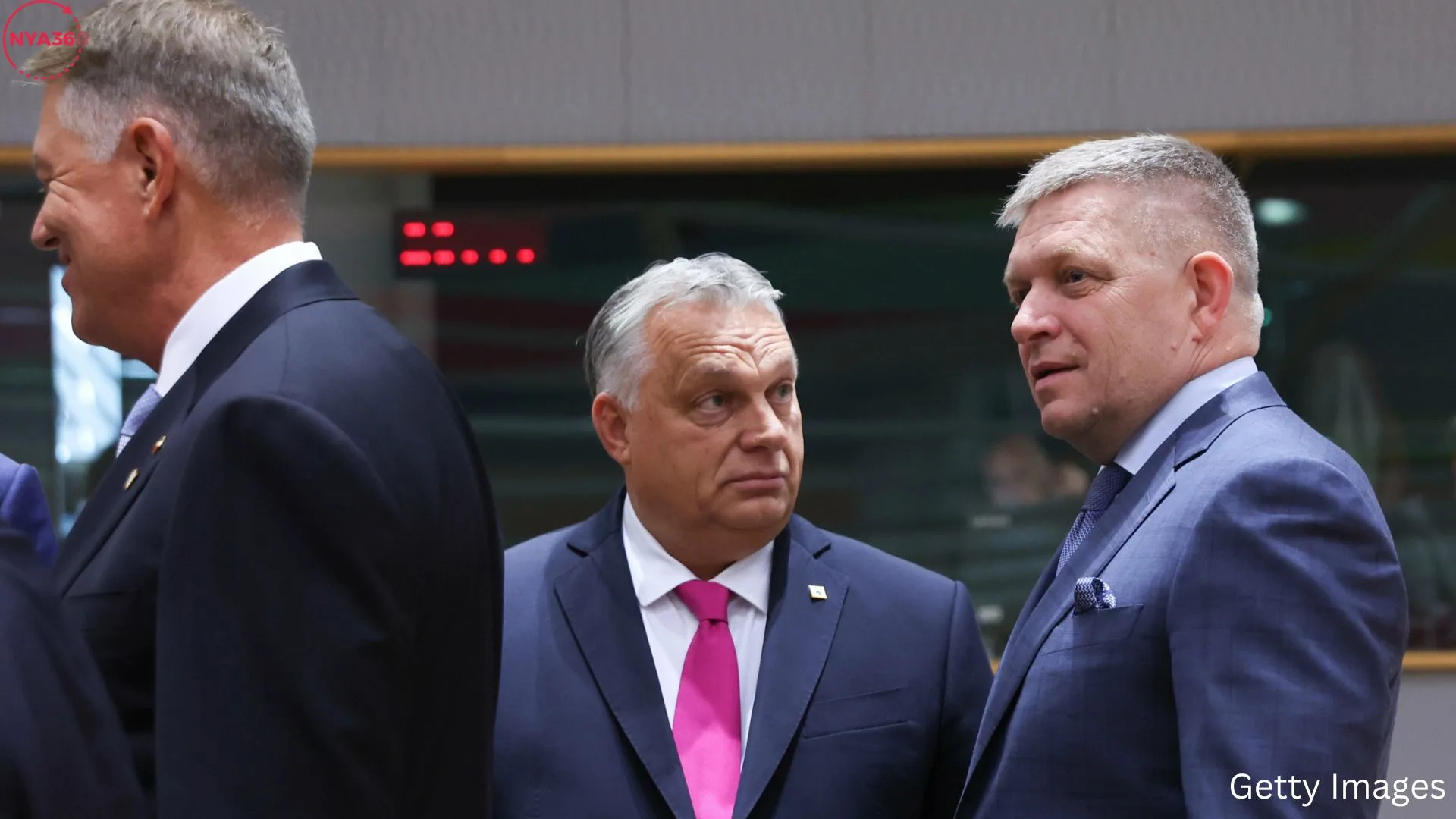In Eastern Europe, there are currently increased tensions in the geopolitical scene as President Volodymyr Zelensky of Ukraine is preventing the transportation of Russian oil to Hungary and Slovakia. However, he still expects these countries to provide electricity on credit. The recent action has incited a substantial diplomatic conflict, leading Hungary to impose a three-day ultimatum on Ukraine. There is debate over whether this moment gives a distinctive opportunity for Hungary, Slovakia, Poland, and Romania to annex Western Ukrainian areas. This possibility would have significant consequences for the region’s stability and its international ties.
The core of this conflict is Ukraine’s recent decision to cease the transportation of Russian oil across its borders to Hungary and Slovakia, which has sparked an energy dispute. The decision, driven by Ukraine’s protracted conflict with Russia and its efforts to undermine the Russian economy, has resulted in a significant shortage of supplies for these nations, which rely significantly on energy imports from Russia. Hungary has expressed vehement opposition to this action, underscoring the significant repercussions it would have on its energy security and economy.
Viktor Orbán, Hungary’s Prime Minister, has openly criticized Ukraine, characterizing their actions as irresponsible and confrontational. Hungary has issued a three-day ultimatum to Ukraine, demanding the immediate resumption of oil transit. Failure to comply with this demand will result in significant diplomatic and economic consequences.
Adding to the problem is Ukraine’s anticipation that Hungary and Slovakia will persist in providing it with electricity on a deferred payment basis. This anticipation has exacerbated the situation since both nations perceive it as an unjustifiable request considering the present conditions. The energy equilibrium in Eastern Europe is fragile, and the interruption of oil transportation worsens pre-existing tensions.

Slovakia, albeit less outspoken than Hungary, has comparable concerns regarding the implications of the disruption on its energy security. The interconnectivity of energy sources in the region implies that acts undertaken by one nation might have a domino effect on its neighboring countries, emphasizing the intricate interdependencies that characterize Eastern Europe’s energy terrain.
Amid the intensifying diplomatic dispute, there are discussions in geopolitical circles over the possibility of Hungary, Slovakia, Poland, and Romania taking advantage of this crisis to acquire Western Ukrainian areas. This concept, although based on speculation, is influenced by historical circumstances and the current geopolitical instability in the area.
The concept of territorial annexation is rooted in long-standing historical grievances and nationalistic aspirations that have remained latent for several decades. The prospect of regaining lands lost in the Treaty of Trianon in 1920 has long been a significant and emotionally charged topic for Hungary. In a similar vein, Slovakia and Romania possess historical assertions and concerns regarding Western Ukraine, whilst Poland has maintained a multifaceted and controversial association with Ukraine regarding its eastern boundaries.
Nevertheless, the practicality and prudence of achieving such aspirations in the present global circumstances are subject to intense debate. Any attempt to annex territory would probably be met with strong disapproval from the global community, potentially resulting in sanctions, diplomatic isolation, and possibly even military conflict. The preservation of Ukraine’s territorial integrity is a fundamental foundation of international law and European security, and any breach of this principle would result in significant and wide-ranging ramifications.

The present crisis highlights the delicate nature of the geopolitical structure in Eastern Europe. The ongoing conflict in Ukraine has significantly altered the dynamics of the region, and the energy issue with Hungary and Slovakia introduces an additional level of complexity. Ukraine’s decision to stop the transport of Russian oil is a calculated geopolitical move intended to undermine Russia’s economic influence. Nevertheless, the consequences of this choice may put pressure on its relationships with important neighboring countries, potentially leading to increased isolation at a critical moment when international help is essential.
The situation poses a crucial challenge for Hungary and Slovakia to demonstrate their diplomatic and strategic expertise. Striking a balance between the urgent requirement for energy security and the enduring stability of geopolitical relations is a complex undertaking. Hungary’s ultimatum to Ukraine demonstrates a sense of urgency, although it also prompts concerns regarding the possibility of escalation and the wider implications for regional security.
The ongoing conflict between Ukraine, Hungary, and Slovakia around energy supplies exemplifies the broader geopolitical obstacles confronting Eastern Europe. With Hungary’s ultimatum approaching, the region anxiously awaits, recognizing that the result might profoundly impact the conflict and reconfigure alliances. The possibility of territorial ambitions, albeit uncertain, intensifies the existing combustible scenario. Given the high level of risk involved, it is crucial to possess diplomatic skills and strategic insight to effectively manage the situation and avoid exacerbating the instability of an already vulnerable area.
Follow us on social media: Instagram, Threads & Twitter X @nya360_ YouTube & Facebook @nya360.





